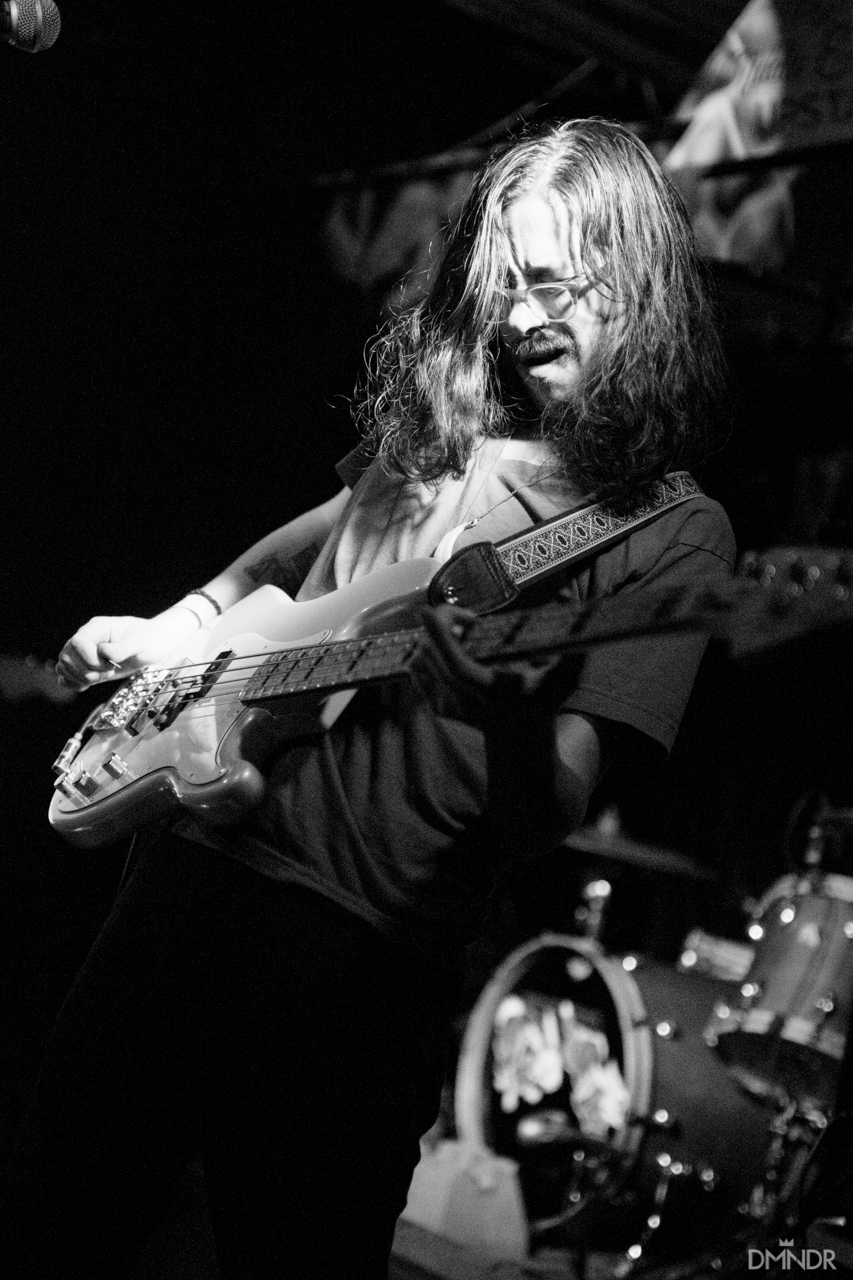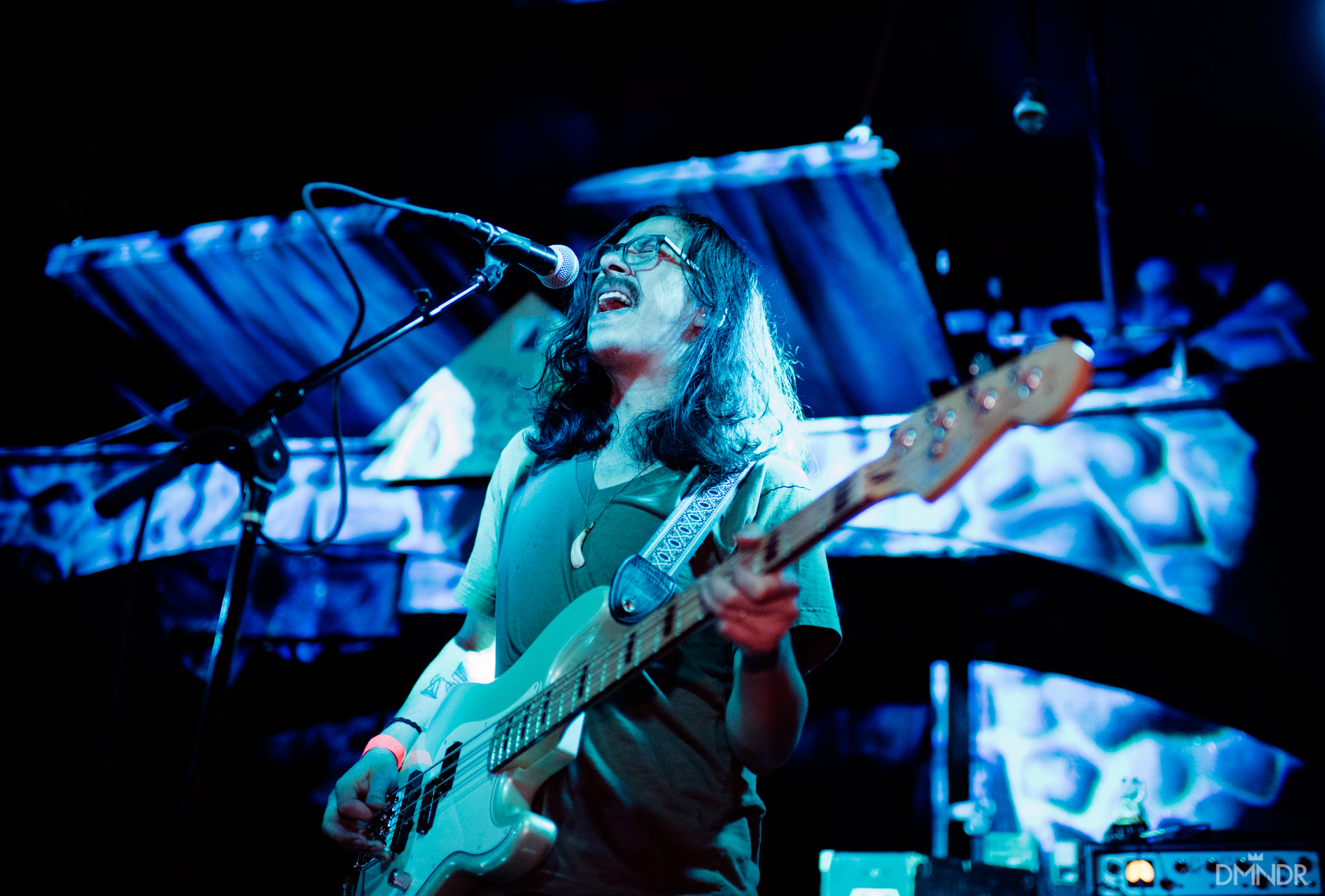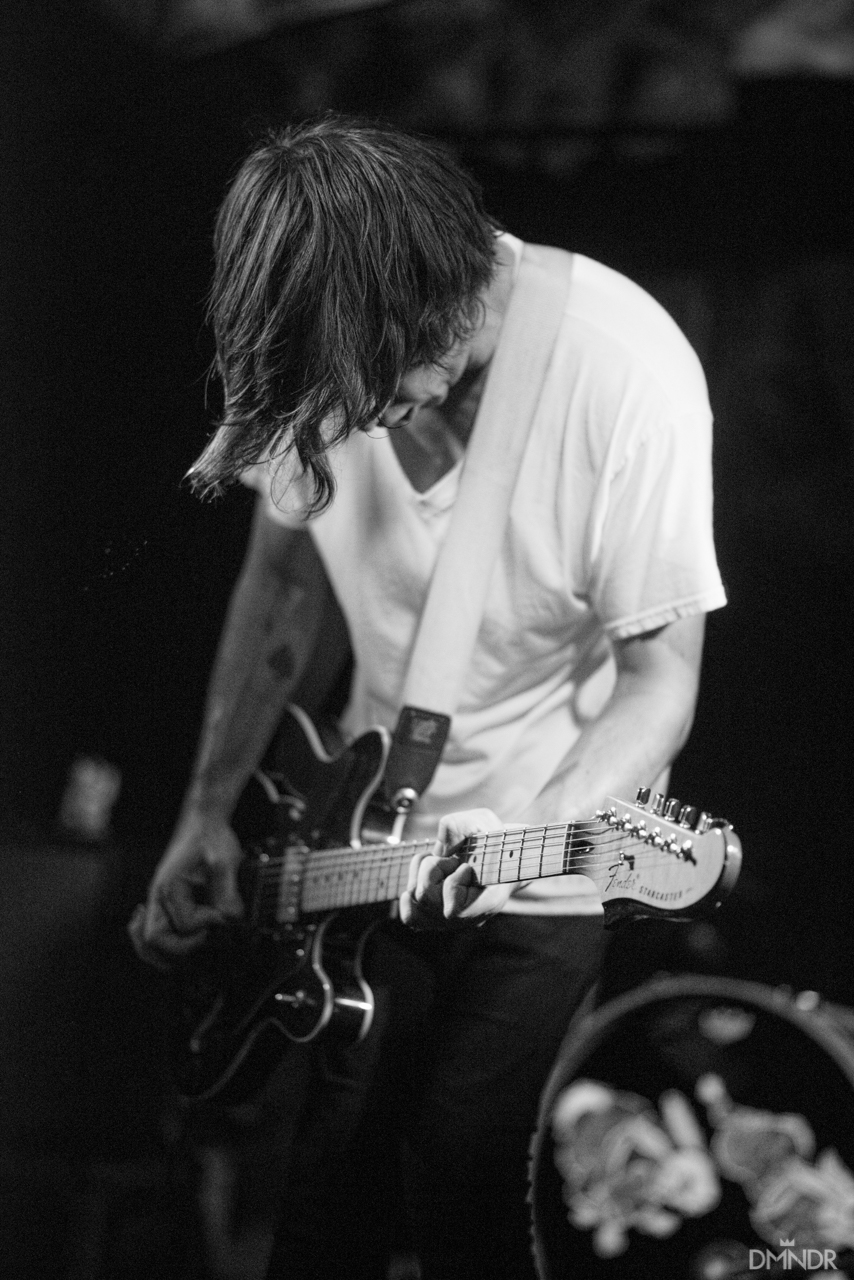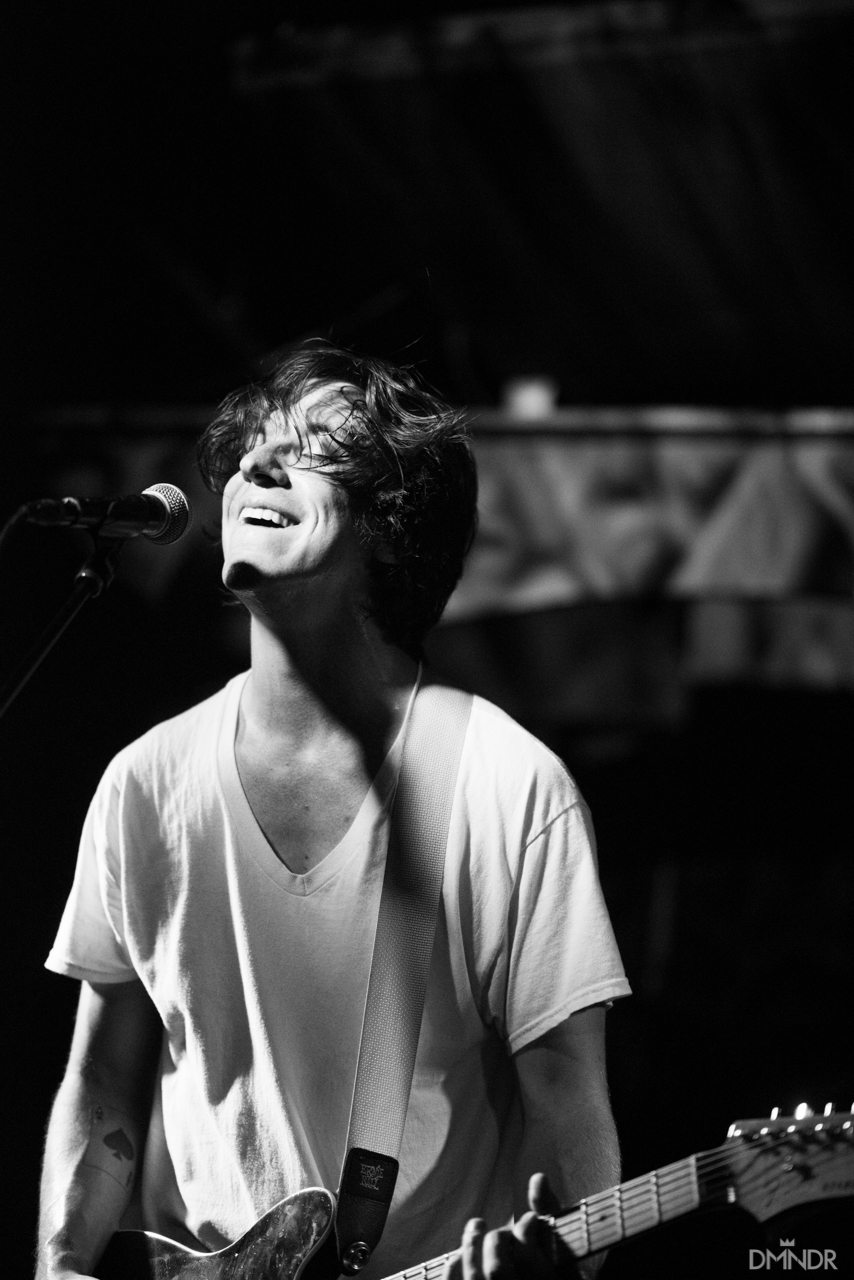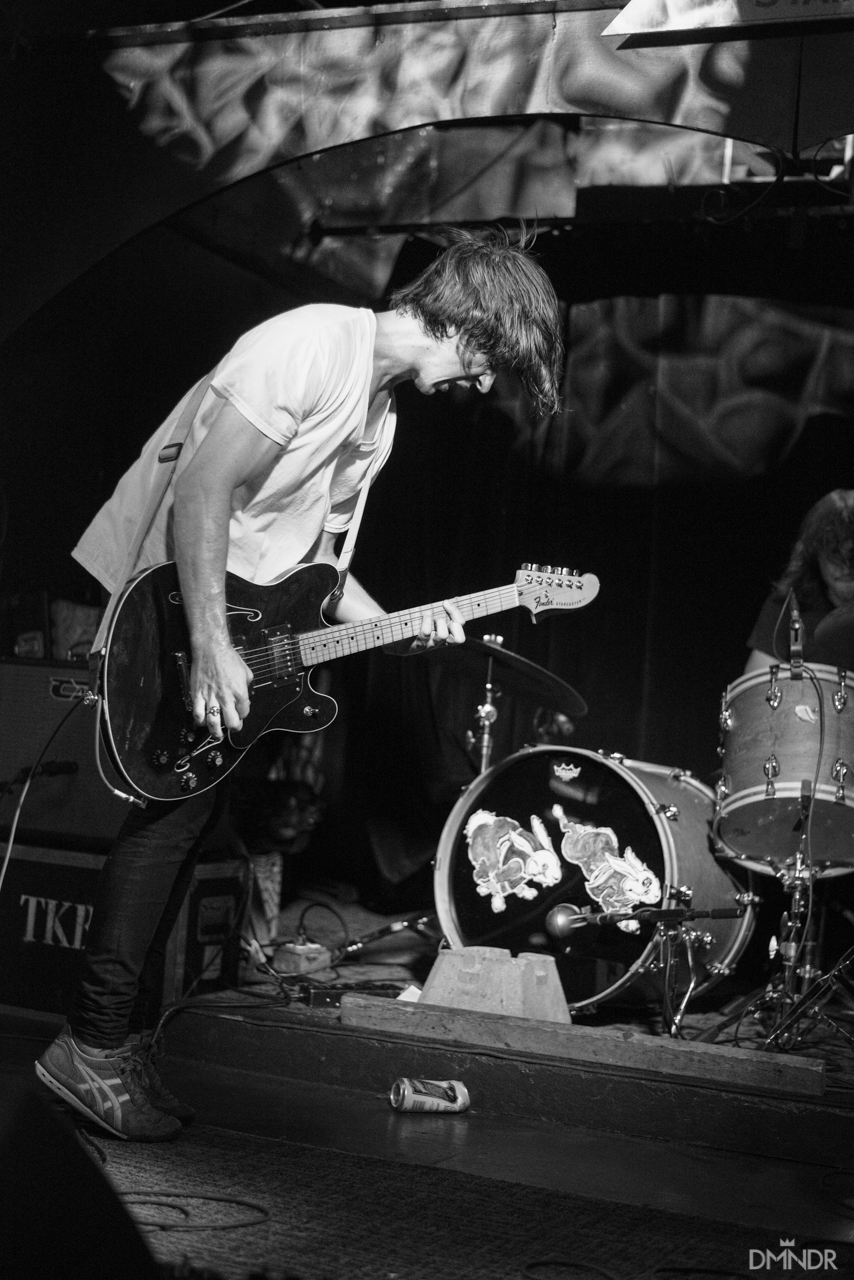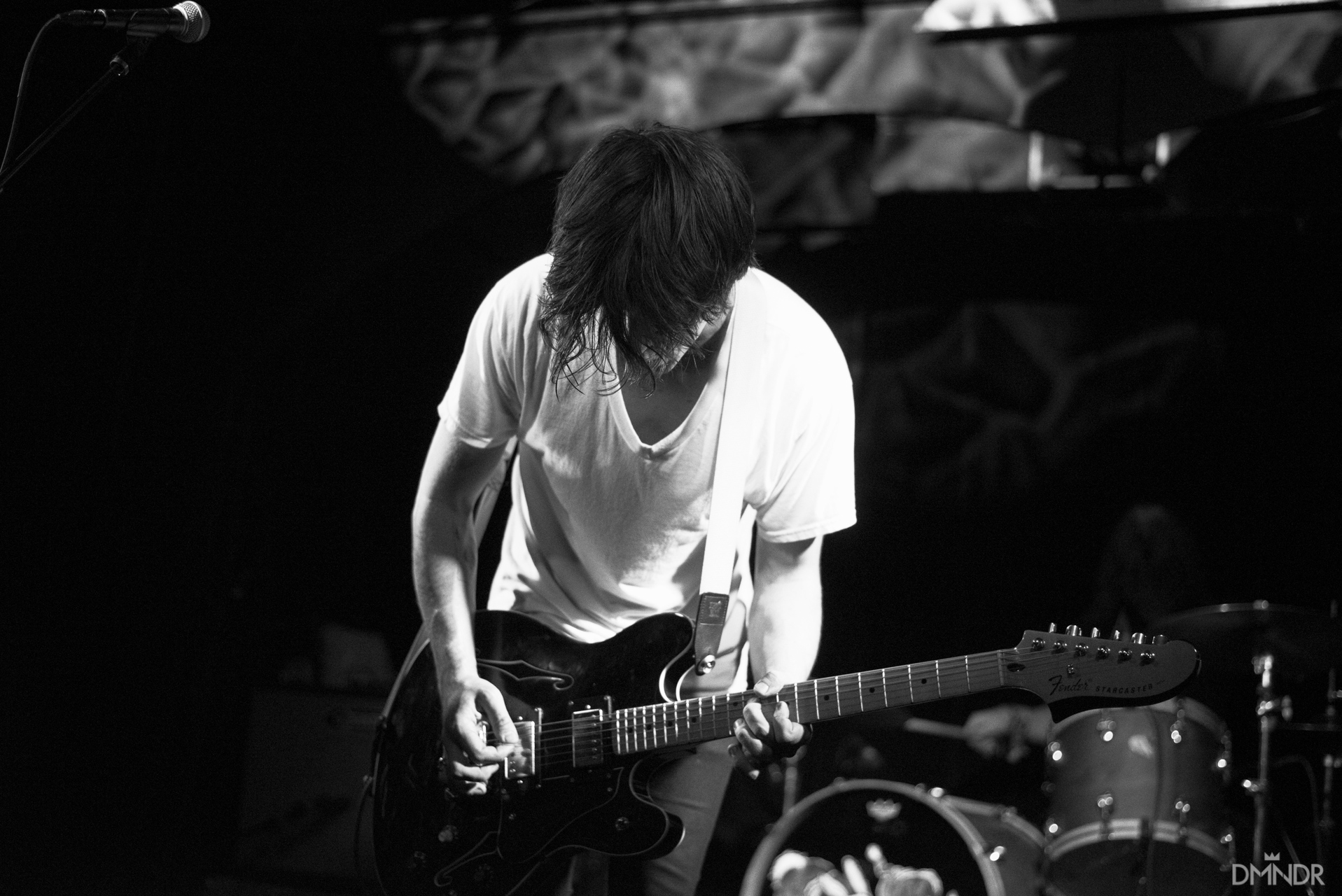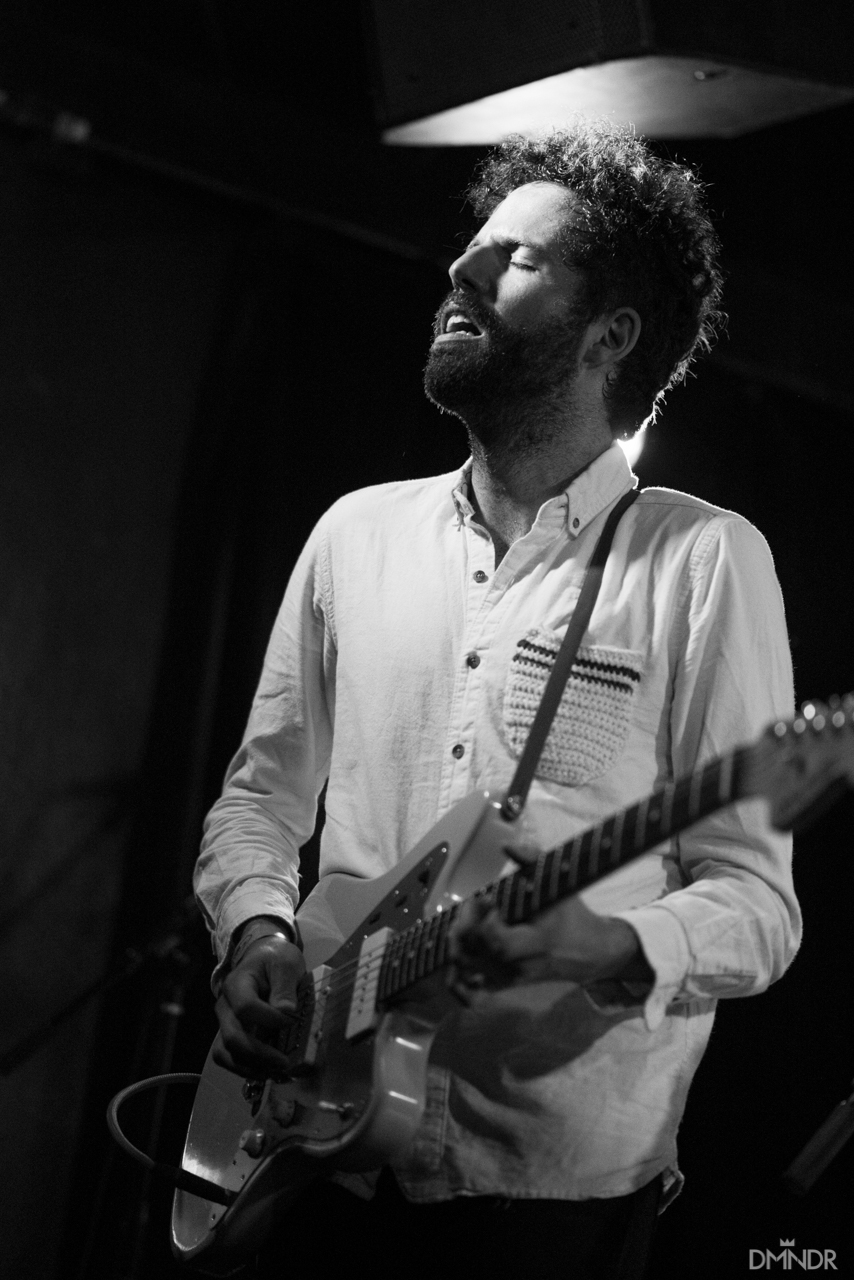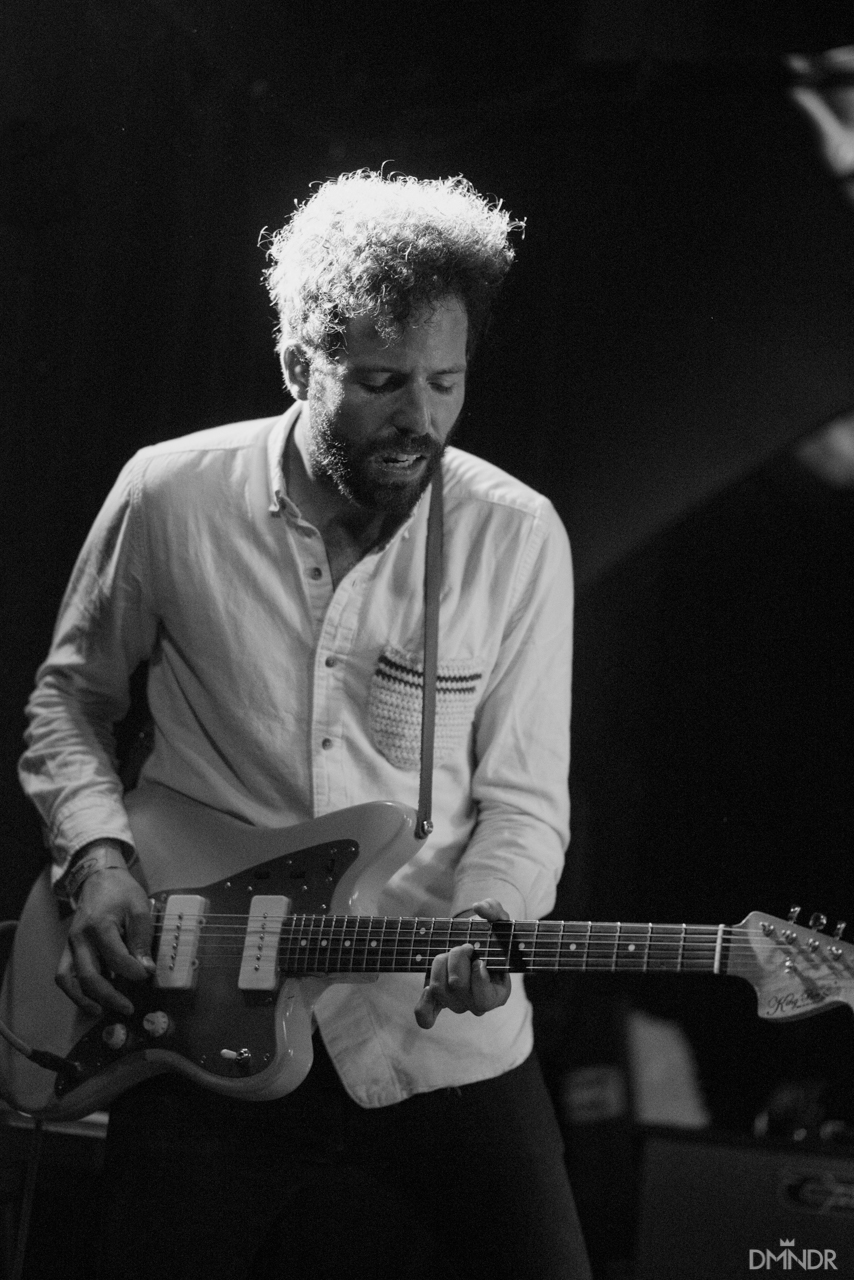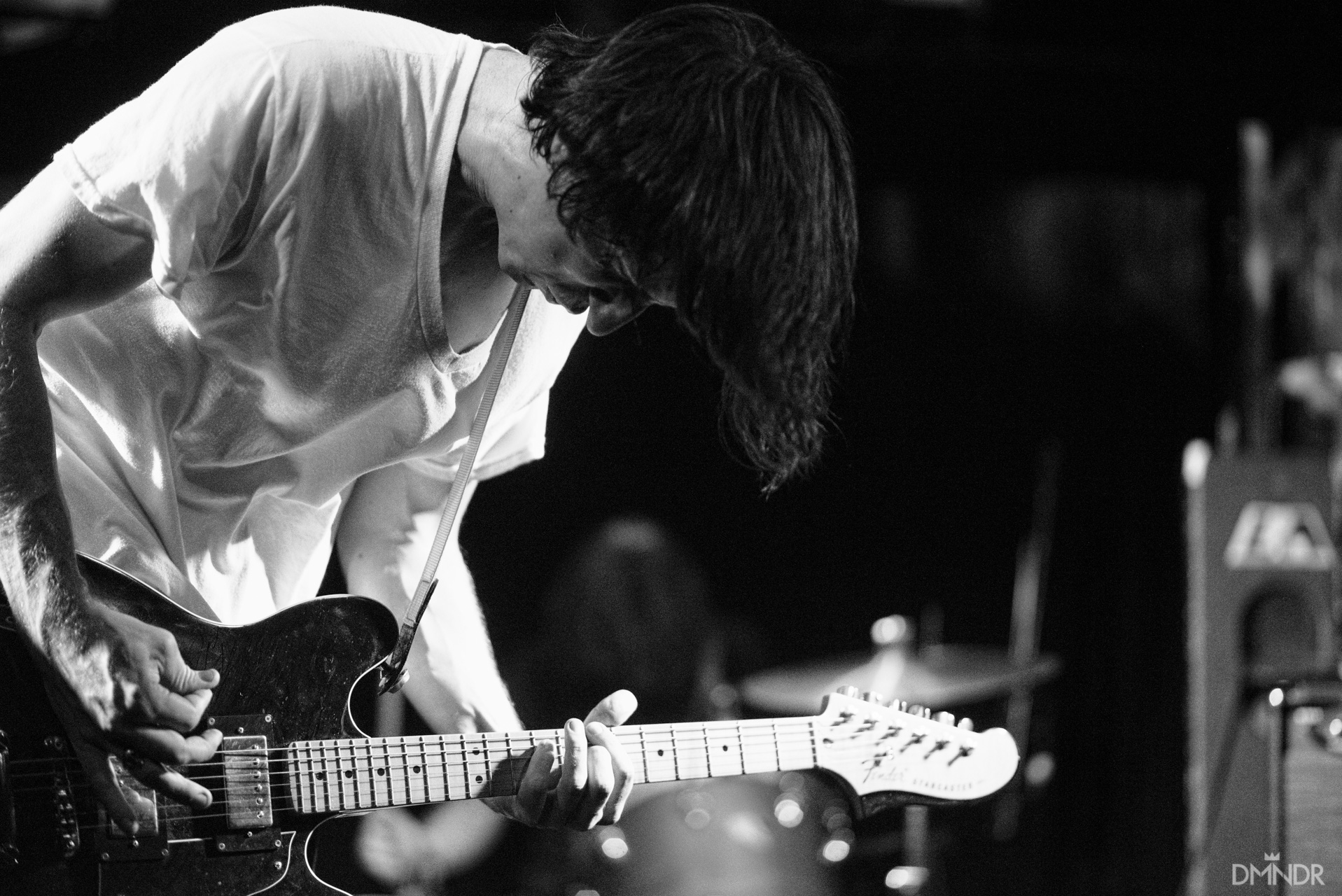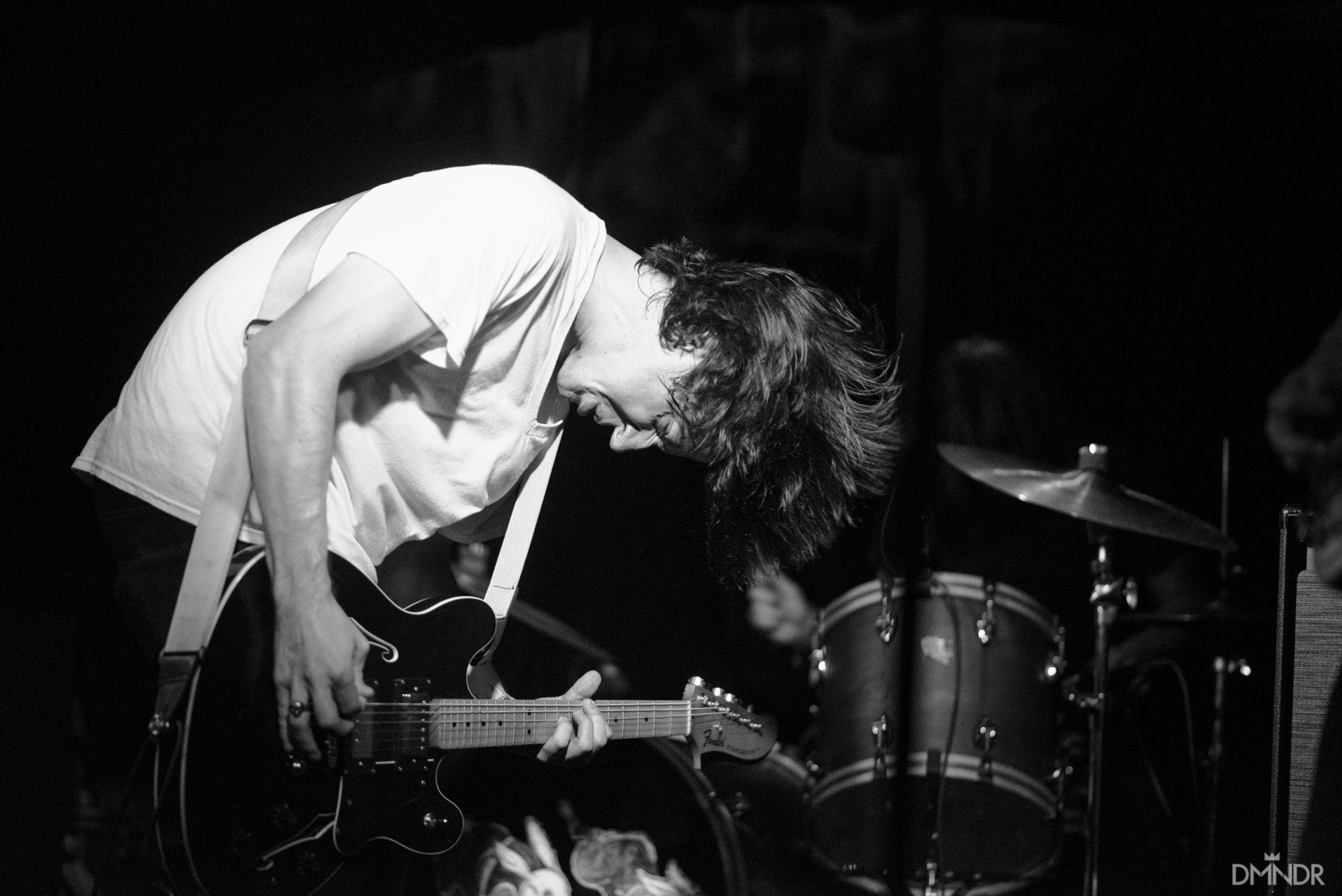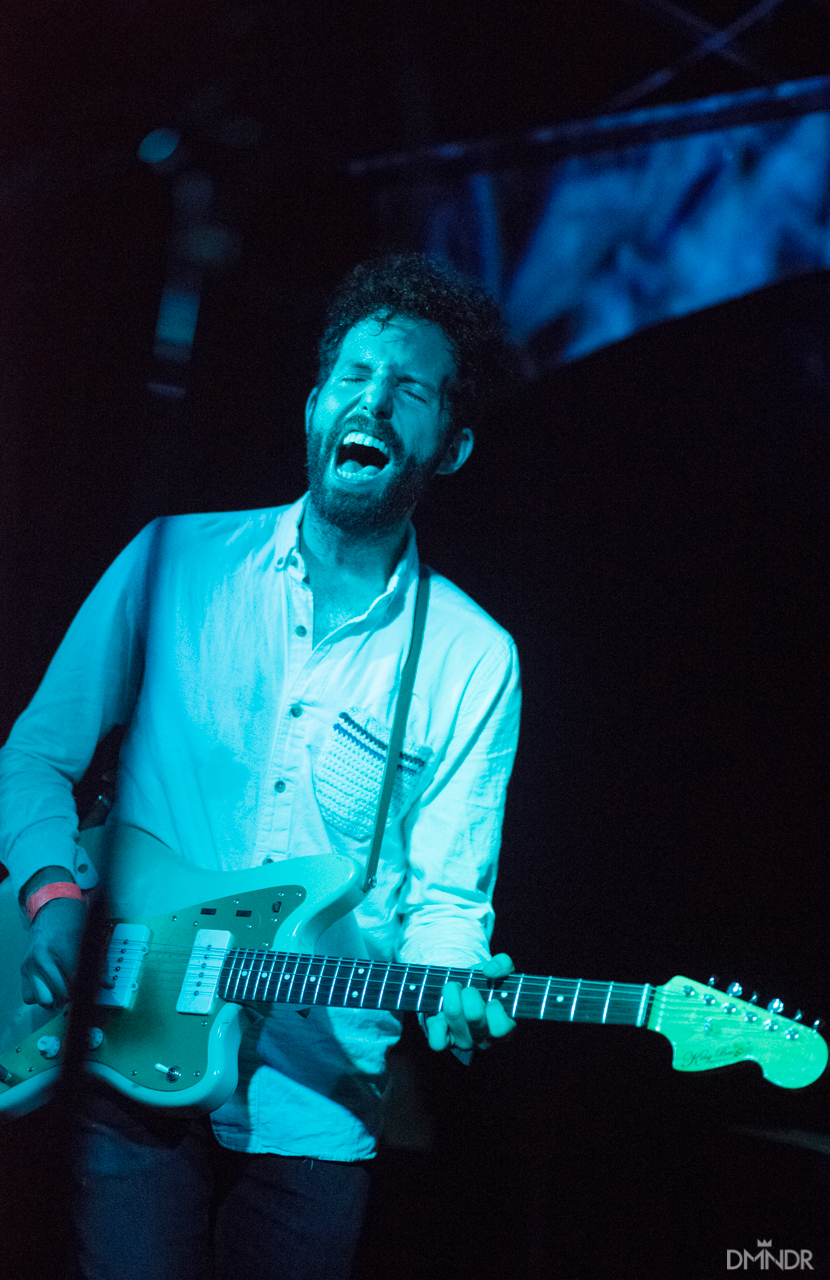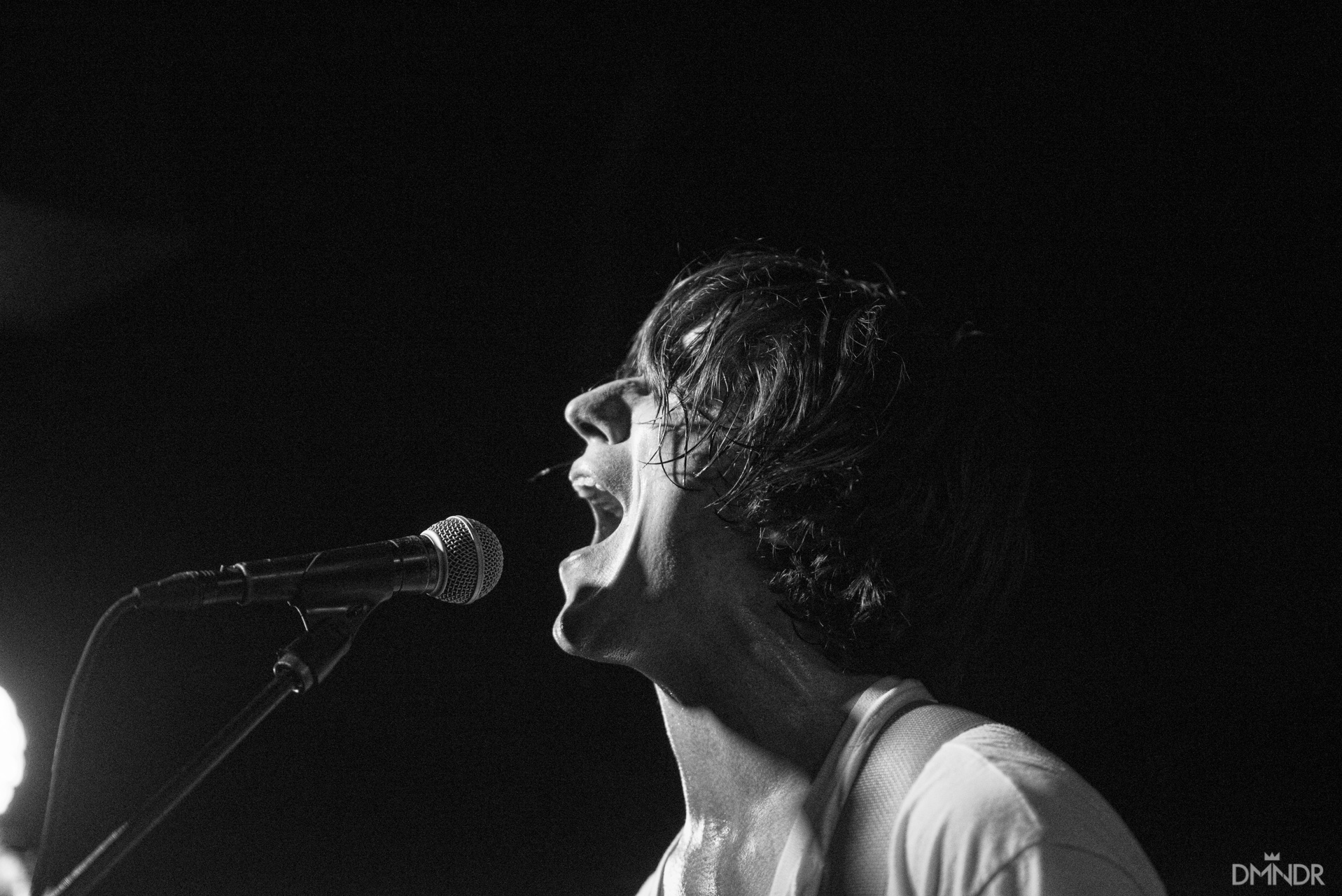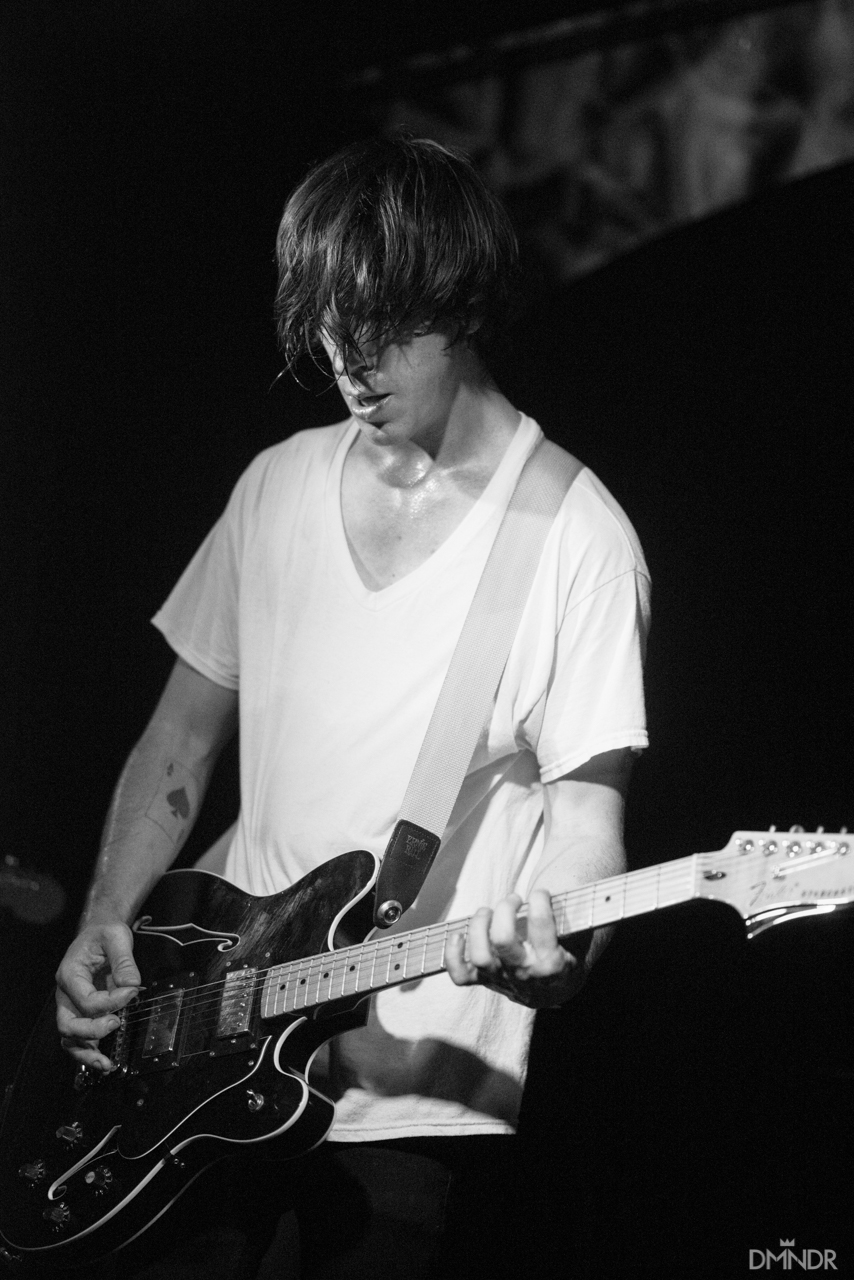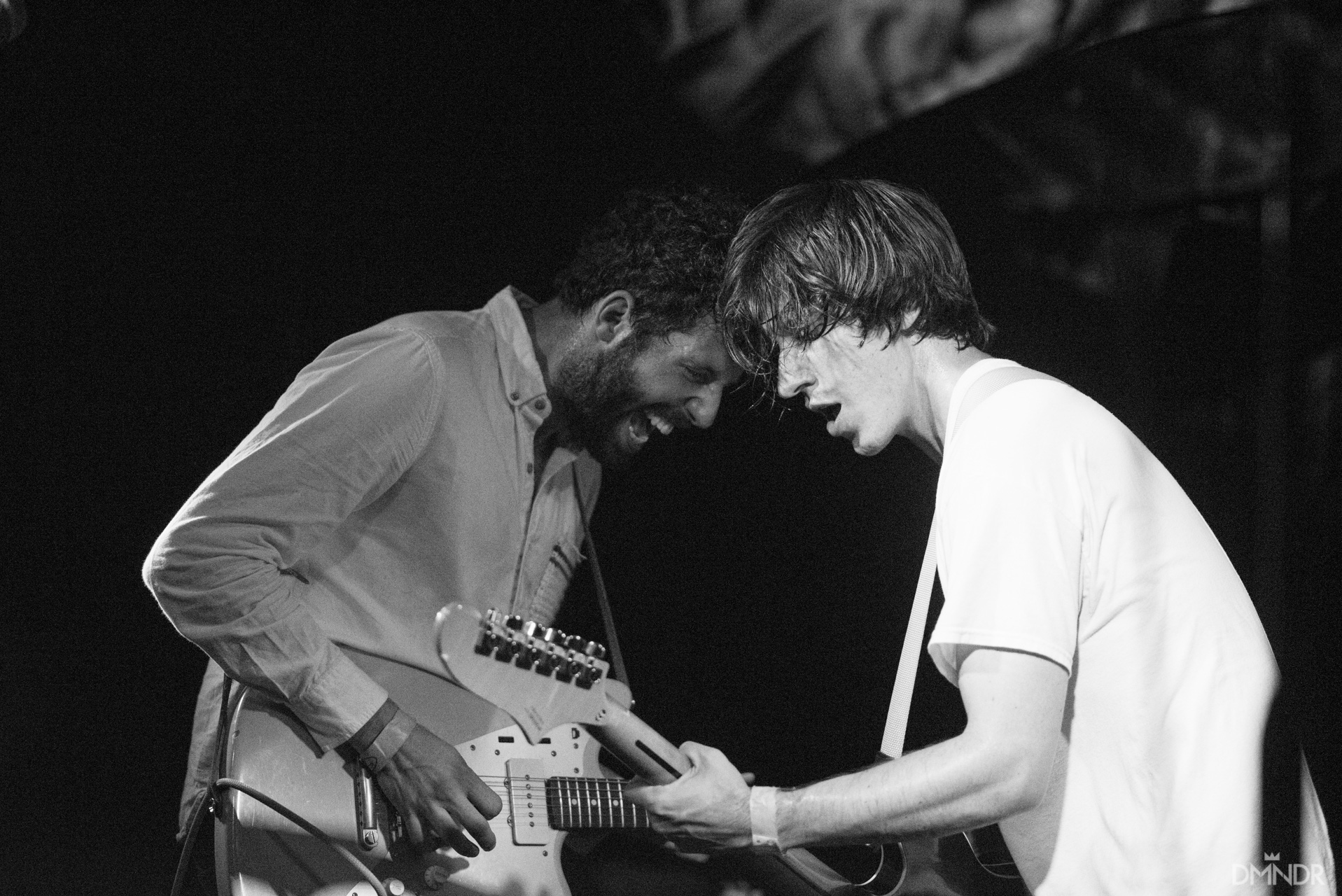After some back-and-forth over text on where to meet up to do our interview, The Kickback lead singer/guitarist Billy Yost and I decide on The Middle East Restaurant, a well-known venue in Cambridge that boasts several stages for concerts, and where the band will be performing later that night. Billy comes up to me and warmly introduces himself. He asks where we should do the interview, and I say wherever is quietest. “Wanna go to the van? That sounds creepy, I promise it’s not!” I can tell he’s being sincere, and I laugh as we head outside of the restaurant.
The rest of the gang is hanging around the van, and they immediately offer me a seat as well as some popcorn and donuts. As I assure them I’m all set on food, I can’t help but notice a certain humbleness about them — how they treated me like I was a friend they’d known for years. It’s sometimes hard to separate people from their music and realize that, yes, performers have day jobs and feelings and Michael Keaton obsessions (check out The Kickback on Twitter or Facebook, you’ll see what I mean), but in this moment I was hanging out with these cool guys from Chicago who complimented my space socks and offered me snacks. Whether they’re performing on stage or talking to concert-goers after the show, The Kickback has a way of making everyone feel welcome, like they’re part of a big family. During their show, Billy kept rambling on about random shit on stage, probably half due to lack of sleep, but in a way that reminded me of how I’d talk to my best friend or sister. Those nuances about bands are what bring them down to Earth and makes you realize they’re human, too – not just some voices and sounds you hear through your earphones.
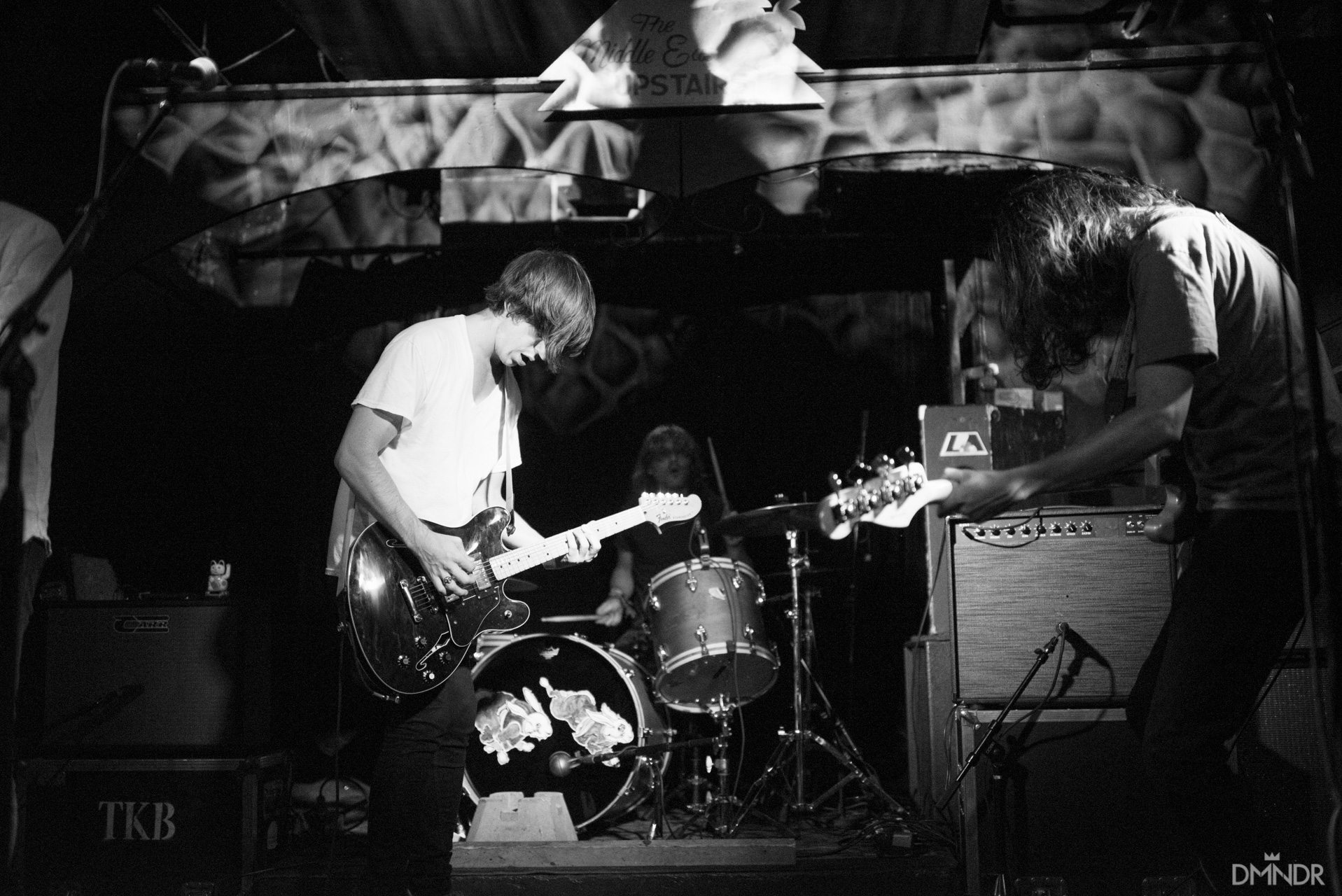
Since releasing their debut album in 2015, Sorry All Over the Place, produced by Jim Eno of Spoon, the indie rock band is slowly but surely carving out their own space in the industry, and for good reason. With Yost’s voice ranging from soft singing to pronounced yelling, their clever lyrics mesh with heavy rock and roll influences and catchy riffs, but the band manages to create a distinctive and compelling sound on each song. Check out what The Kickback had to say about their album, the DISASTOUR podcast, and Twin Peaks.
Cara: To start off, can you give me a bit of background on the band and how it came together?
Billy: I moved to Chicago in late 2009 from South Dakota and started posting Craigslist ads and eventually found Jonny. It was a revolving door for a while but we found Ryan through our friends Someone Still Loves You Boris Yeltsin, which is a really great band. And then this is Dan’s first tour with us but he’ll hopefully be with us forever.
C: So South Dakota? Are you from a small town?
B: Yeah it’s a town of about 2,000 people, so Chicago was a big, big leap, and our apartment got broken into almost immediately. It was silly how naive I was. I would leave my car door open, just unlocked. When we left for vacation, we’d leave for like two weeks with our house unlocked. We got wise to the world. But we’re hardened street toughs now.
C: Coming from such a small town, do you think that’s had any impact on your music at all?
B: Yeah, but I don’t really know how. I grew up on oldies radio almost exclusively until I was about 15, it’s really all my dad listened to. My mom would go a little later, about mid-’70s, she listened to a lot of The Doors and occasionally some AC/DC, but it was pretty much ‘50s and ‘60s. I think whenever I try and make a song I’m still coming from a really naive, ‘60’s one-hit wonder kind of place. But I’m trying to move away from that.
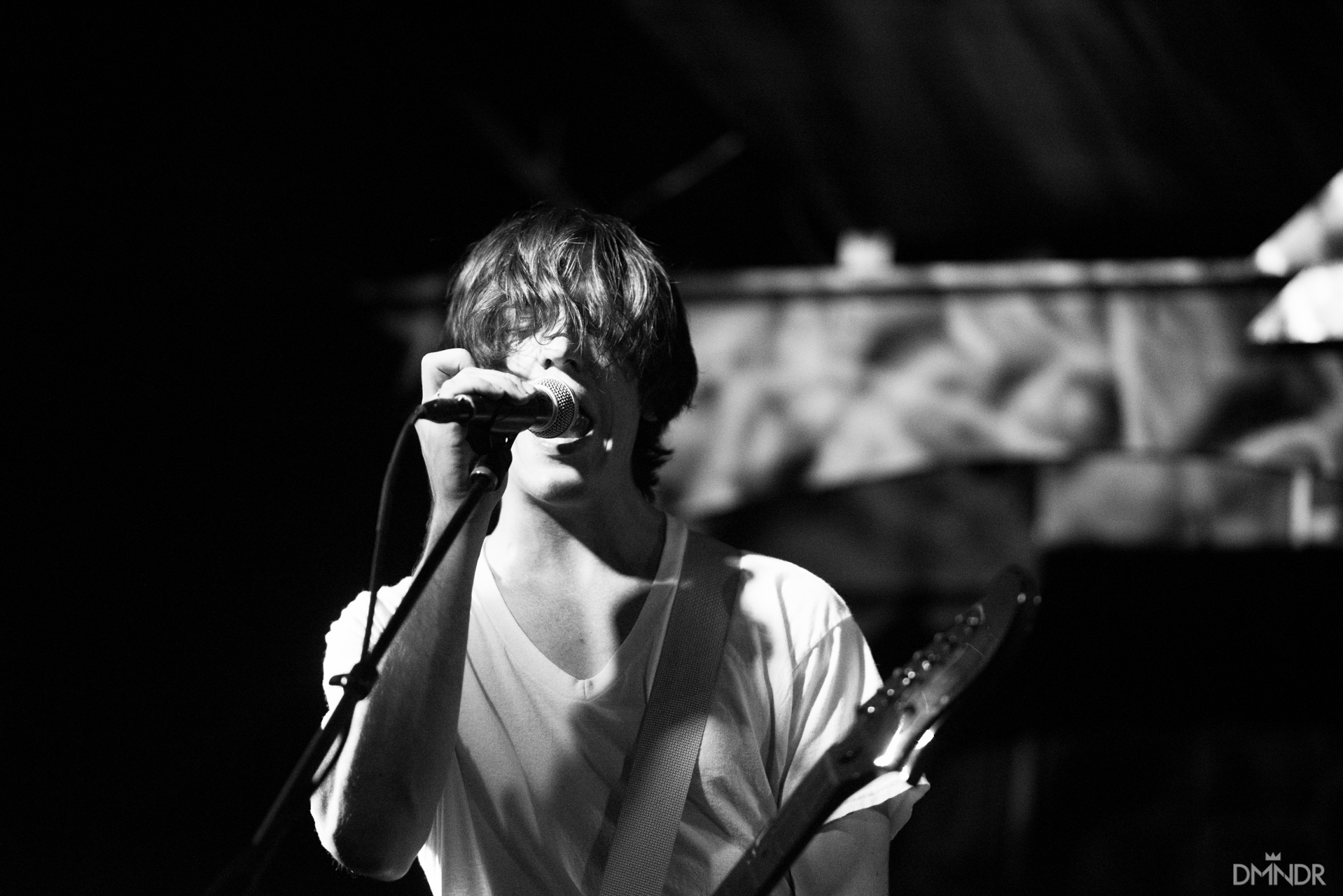
C: Tell me a bit about the creative process, who writes the songs mainly?
B: I’ll try and put together like a skeleton, and I’ll bring it to the guys and they just make it better. I’ll bring an idea, verse and chorus, but I really need everybody to make it better.
C: Teamwork makes the dream work, ya know?
B: Oh I’ve never heard that one. I like it. I’ll call in the t-shirt order. Dan, what’s it like for you being the newest?
Dan: I’ve always come from the standpoint where like writing happens in a room, like there’s 4 or 5 people and they all just kind of fuck around until you find something that sounds cool. I like being on a project where we create songs rather than just cool sounds.
Jonny: I try to complement what Billy does, we weren’t really school taught so he has a certain way of playing guitar and I have a completely different way of playing guitar, and we just kind of compliment each other.
B: We have things called Jonny chords, where I play where like I’m missing three fingers, and all of Johnny’s chords are non-traditional, they’re the best. So if you write the most boring progression, which I tend to do over and over again, whatever Johnny kinda lays on top makes it sound new and relevant.
C: So it was on Sorry All Over the Place that you worked with Jim Eno, tell me a little about that.
B: I wish Jim was walking down the street right now because I would pick him up and bear hug him and spin him around, he’s a guy like that. He was like the relentless optimist, while we were all kind of losing our minds making the record. We were scared and on a timeline, just trying to get all this stuff done, he was the cheerleader. And he knew he had too, because we were tightly wound. He’s really pure, he’s always shooting for the best possible pure analog sound you can get.
J: He was always willing to let us try a bunch of cool shit. Whatever weird stuff. But it was about capturing the sounds.
B: And Spoon’s one of my favorite bands in the whole world.
C: When I first went to listen to that album, I saw a song called White Lodge, and I thought, “Hmm, is that maybe a Twin Peaks reference?” And then I saw in the video you guys just did for Fanger, there was a photo of Laura Palmer on the wall, and I was like “It’s gotta be!” So, why Twin Peaks?
B: I think it’s one of the best things that’s happened to people, ever. We all really like Twin Peaks.
C: Me too, I’ve watched the entire series maybe 5 times.
D: Even the part where James Hurley takes a road trip? And fixes that lady’s car?
C: Oh when she tries to frame him for her husband’s murder? Yeah!
D: Yeah, so I was just getting ready to move, I was back living with my parents and saving up, and when you graduate from college it’s the worst, like I had just lost touch with everything for a few months. I remember I woke up one day convinced that if I could just do exactly what Dale Cooper would do in every sense, that it would be fine and everything would be ok. But it’s really hard to be that good of a person all the time. It lasted like four days. But I got that song put together during that time.
J: Yeah we actually got to go visit where it was filmed, in Snoqualmie.
B: We played in Seattle, and we took a couple extra days so we could go to where it was filmed. We bought like the world’s most expensive pie at that diner, they’re really cashing in on those tourists.
J: The Double R Diner!
B: Yeah. And there was a small town-ness about it that I could relate to. I just love everything about it.
C: I love that show so much. Did you know they’re coming out with another season?
B: Yeah it’s coming out next year, if you really wanna ruin it, you can go and look at all the casting stuff online, people have taken a lot of photos of them filming it. I don’t want to look because I don’t want to ruin it. I’m stoked regardless.
C: Definitely not doing that. But yeah, David Lynch though. Genius.
B: There will probably be more Twin Peaks songs to be real honest.
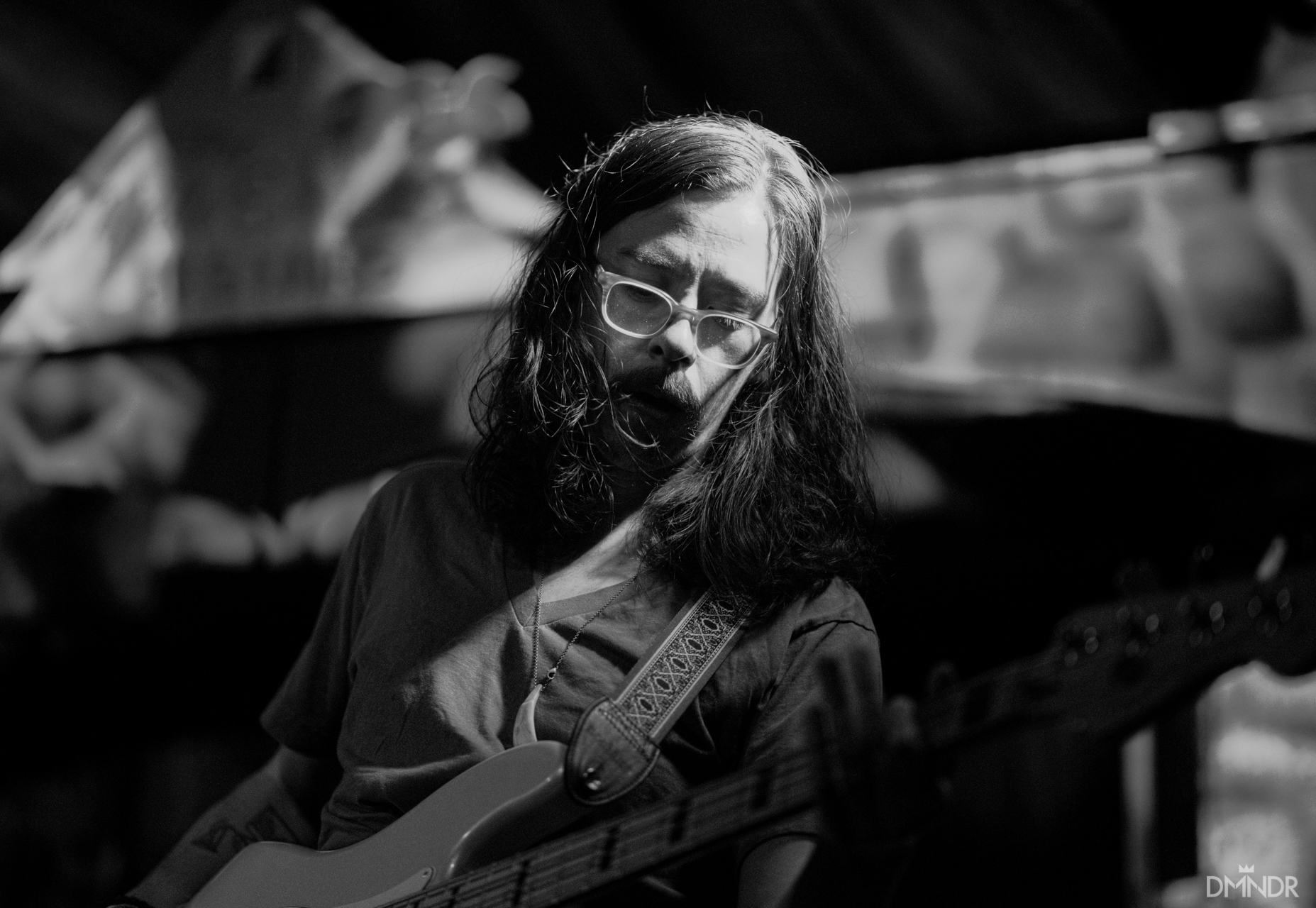
C: That’s wonderful news. So for that music video you just put out, for Fanger, what was the idea behind it? I saw that it took about 6 months to put it together?
B: I met this guy David and his girlfriend Lauren while we were working at a summer camp for kids together and somehow they mentioned stop motion, and I’m a huge Rankin/Bass fan, you know like Year Without Santa Claus and Rudolf? I love those for some reason, and we started talking about them a lot, and it turned out they were emerging filmmakers. They were like ‘We should make a music video!’ and I was like ‘Yeah good luck, I doubt it will get past like twenty seconds’ because of how long it takes, and then they made the first verse, and it absolutely blew my mind. It just incorporates all of these things, like I’m a 30-year-old boy, there were so many things that mean so much from when I was a kid that I just kind of cling to, and in the video, they were able to dial-in to all of the things that I think make me me, and I think in turn sort of forced onto the band, like bathtubs.
J: And muppets [laughs]. But even the nuances they got on the video, like the head-butting stuff.
B: And the table. They were like ‘Hey we got a table, what should we put on the table? What’s you on a table?’ Like that sort of attention to detail. I’m happy we caught them on their way up, I’m sure they’re going to be hugely successful and I’m just grateful we met them when we did.
C: It is a really cool video.
J: Yeah and you see something different each time you watch it. Like they got a shot of me putting my back against the wall while I’m playing guitar, I always do that!
B: They watched a lot of live video, which was cool.
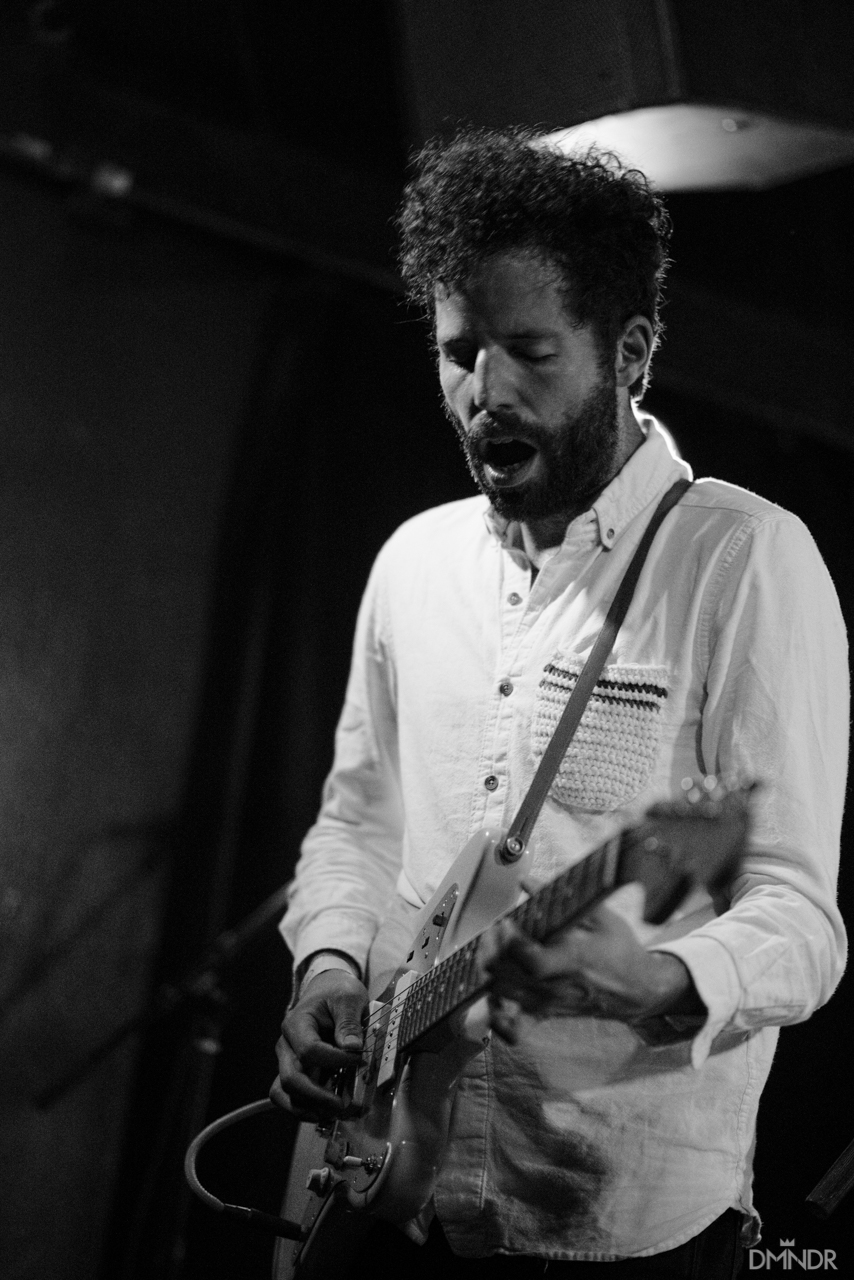
C: For sure. So let’s talk a little about your podcast, I saw that you were going do some more on that?
B: Yeah it’s been on hiatus. But I thought the idea of a band on tour was a novel idea for a podcast like six years ago, until this point it’s an illustration of every van blow-up, like we’re on our third van since we started that podcast, and for whatever happens to us it’ll be a record of a band that was working really hard. And so when we’re old and dead and whatever, there will be some kind of record of what it’s like to be a band at this time making this kind of music. I thought that was a good idea, at least in theory, when you listen to it, you’re just like ‘God these guys don’t stop talking, I don’t care!’ [laughs] The next episode going up is about Dan, introducing Dan and trying to get down to his inner core, we’re going to talk about what it’s like to join a band that’s been touring like idiots for the past year. It’s just kind of a neat mile-marker. It’s probably more for us than anybody.
J: Plus it’s kind of cool when we haven’t put one up in a while and people are like “Dude when’s the next podcast?”
B: Yeah, it’s like, some people are actually paying attention. Do you listen to a lot of podcasts?
C: Not really, do you have any recommendations?
D: There’s this one called The Baby-Sitters Club Club, it’s just a bunch of dudes, like twenty-something year old dudes, that just read The Baby-Sitters Club books. It’s pretty good.
B: The one that really got me into podcasts, well it’s not a podcast anymore, but it’s basically two late-forty’s comedians who both think they blew their big chance, kind of talking about what life is like after you blow it essentially. Which is an interesting perspective but it’s terrifying. They eventually had to stop because it was just too depressing, but it’s really interesting.
C: So your guys’ tour goes through October, do you have any plans for after tour? Working on another album?
B: Yeah, Ryan, what are we doing after tour?
Ryan: Uh, working? [laughs]
B: Yeah, probably first and foremost. We have a lot of new songs we’re working on, and we’re hoping for some kind of new music early next year.
J: It took a long time for us to put out the first one, so we kind of wanna speed up the process.
B: Yeah, we’ll probably be on the road again, but hopefully spend some time at home. I love holidays and Christmas. Christmas is my favorite.
